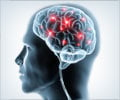Patients hospitalized for psychiatric illness may be at increased risk of stroke.
- The odds of stroke were seen to be higher in patients who were treated in emergency room for psychiatric illness.
- The risk of stroke was highest in the first 15 days following admission.
- This risk declined over time but lasted for at least a year.
- Increase in blood pressure triggered by psychological distress could be one of the possible explanations for this association.
Patients hospitalized or treated in the emergency room for depression, anxiety, post-traumatic stress disorder (PTSD) or other psychiatric disorders may have an increased risk for stroke. The chances are particularly high in the 15 days following their psychiatric diagnosis.
Though the risk started to decrease after 30 days, it remained twice as high for at least a year after the ER visit or hospital stay, the researchers said.
"Based on my clinical experience in the hospital, I have noticed that many patients believe that stress for whatever reason - work, family, work-life balance - contributed to their stroke," said Jonah P. Zuflacht, B.A., lead researcher and a fourth-year medical student at Columbia University's College of Physicians and Surgeons in New York.
"But the data to support a connection between stress and stroke is limited and often relies on a patient's subjective recall of distress, which can bias results." Zuflacht added.
Previous research by American Heart Association had stated that higher levels of stress, hostility and depressive symptoms are associated with significantly increased risk of stroke, especially in middle-aged and older adults.
Study
For the study, researchers analyzed the Healthcare Cost and Utilization Project database for California and found 52,068 stroke patients between 2007-2009.Researchers found that psychiatric distress leading to a hospital visit increased the odds of stroke within five time periods. The odds of a stroke were:
- 3.48 times higher within 15 days
- 3.11 times higher within 30 days
- 2.41 times higher within 90 days
- 2.23 times higher within 180 days
- 2.61 times higher within 360 days
Possible Explanations
The possible explanations for stroke could be due to the following:- Body's fight-or-flight response gets triggered by psychological distress, causing increased blood pressure, which is the biggest risk factor for stroke.
- Psychological distress may also trigger changes in cells that can cause inflammation and oxidative stress, both of which are thought to increase stroke risk.
- People with psychological distress are often forgetful about their medications prescribed to reduce the risk of stroke.
The findings were presented at the American Stroke Association's International Stroke Conference 2017.
Facts on Stroke
- Stroke occurs when blood flow to an area of brain is cut off. This causes the brain cells to be deprived of oxygen and they begin to die.
- Depending on the part of the brain affected, certain functions like memory and muscle control are lost.
- According to the American Heart Association's Heart Disease and Stroke Statistical Update, nearly 800,000 people experience a new or recurrent stroke, annually.
- Every 40 seconds, someone is said to suffer from stroke. Every 4 minutes someone dies from stroke causing 129,000 deaths annually.
- Stroke is the fifth leading cause of death in the U.S.
- Stroke is the leading cause of disability in the U.S.
- What is Stroke? - (http://www.stroke.org/understand-stroke/what-stroke)
- High stress, hostility, depression linked with increased stroke risk - (http://newsroom.heart.org/news/high-stress-hostility-depression-linked-with-increased-stroke-risk)
Source-Medindia















